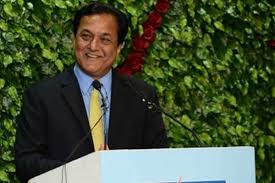NEWS
Sebi orders defreezing of Rana Kapoor's bank accounts
Sebi has ordered defreezing of bank accounts as well as share and mutual fund holdings of Rana Kapoor, former MD and CEO of Yes Bank.
Sebi has ordered defreezing of bank accounts as well as share and mutual fund holdings of Rana Kapoor, former MD and CEO of Yes Bank.

Markets regulator Sebi has ordered defreezing of bank accounts as well as share and mutual fund holdings of Rana Kapoor, former MD and CEO of Yes Bank.
Kapoor is currently in judicial custody after being arrested in March 2020 in the alleged Yes Bank fraud case, news agency PTI said.
The regulator, in March, had attached bank accounts, share and mutual fund holdings of Kapoor to recover dues of over Rs 1 crore. The decision was taken after Kapoor failed to pay the fine imposed on him.
Sebi, in September 2020, had levied a fine of Rs 1 crore on Kapoor for not making disclosures regarding a transaction of Morgan Credit, which was an unlisted promoter entity of Yes Bank.
By not disclosing about the transaction to Yes Bank's board of directors, Kapoor created an opaque layer between him and stakeholders and violated the provision of the LODR (Listing Obligations and Dislcosure Requirements) Regulation, Sebi had said in the order.
The release order came after Supreme Court, on August 2, stayed the Securities Appellate Tribunal (SAT) order which had upheld a penalty of Rs 1 crore on Kapoor, PTI reported. The stay was subject to payment of Rs 50 lakh by Kapoor.
In compliance of Supreme Court's interim order, he has deposited the amount, the regulator noted.
Accordingly, Sebi on Wednesday asked all banks in the country and depositories -- NSDL and CDSL-- "to release the bank accounts /locker, demat accounts and mutual fund folios of defaulter (Kapoor) attached if any pursuant to... the notice of attachment".
In February, the Securities and Exchange Board of India (Sebi) issued a demand notice to Kapoor, although he did not pay any dues, the PTI report added.
The pending dues, totalling Rs 1.04 crore, included an initial fine of Rs 1 crore and an interest of Rs 4.56 lakh and a recovery cost of Rs 1,000.
